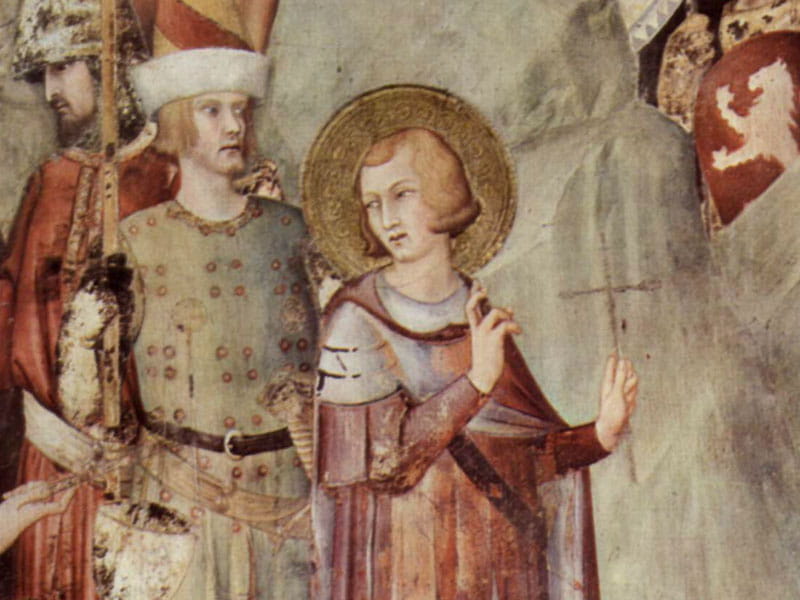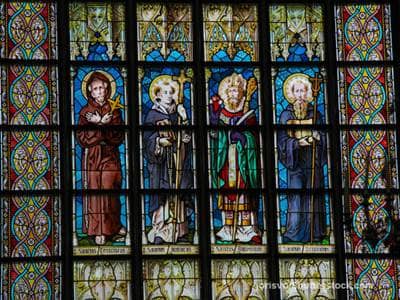St. Martin of Tours (316?-397)

A conscientious objector who wanted to be a monk; a monk who was maneuvered into being a bishop; a bishop who fought paganism as well as pleaded for mercy to heretics—such was Martin of Tours, one of the most popular of saints and one of the first not to be a martyr.
He was born of pagan parents in what is now Hungary and was raised in Italy. The son of a veteran, he was forced to serve in the army against his will at the age of 15. He became a Christian catechumen and was baptized at 18. It was said that he lived more like a monk than a soldier. At 23 he refused a war bounty from the emperor with the words, "I have served you as a soldier; now let me serve Christ. Give the bounty to those who are going to fight. But I am a soldier of Christ and it is not lawful for me to fight." After great difficulties, he was discharged and went to be a disciple of Hilary of Poitiers.
He was ordained an exorcist and worked with great zeal against the Arians. He became a monk, living first at Milan and later on a small island. When Hilary was restored to his see after exile, Martin returned to France and established what may have been the first French monastery near Poitiers. He lived there for 10 years, forming his disciples and preaching throughout the countryside.
The people of Tours demanded that he become their bishop. He was drawn to that city by a ruse—the need of a sick person—and was brought to the church, where he reluctantly allowed himself to be consecrated bishop. Some of the consecrating bishops thought his rumpled appearance and unkempt hair indicated that he was not dignified enough for the office.
Along with St. Ambrose, Martin rejected Bishop Ithacius’s principle of putting heretics to death—as well as the intrusion of the emperor into such matters. He prevailed upon the emperor to spare the life of the heretic Priscillian. For his efforts, Martin was accused of the same heresy, and Priscillian was executed after all. Martin then pleaded for a cessation of the persecution of Priscillian’s followers in Spain. He still felt he could cooperate with Ithacius in other areas, but afterwards his conscience troubled him about this decision.
As death approached, his followers begged him not to leave them. He prayed, "Lord, if your people still need me, I do not refuse the work. Your will be done."
-
St. John Francis Regis (1597-1640)
-
Sts. John Jones and John Wall (c. 1530-1598; 1620-1679)
-
St. Oliver Plunkett (1629-1681)
-
St. Adrian of Canterbury (d. 710)
-
Blessed Junipero Serra (1713-1784)
-
St. Anthony of Padua (1195-1231)
-
Servant of God Francis Garces and Companions (c. 1781)
-
St. Maria Goretti (1890-1902)
-
Our Lady of Mount Carmel
-
Blessed John Francis Burte and Companions (d. 1792; d. 1794)


